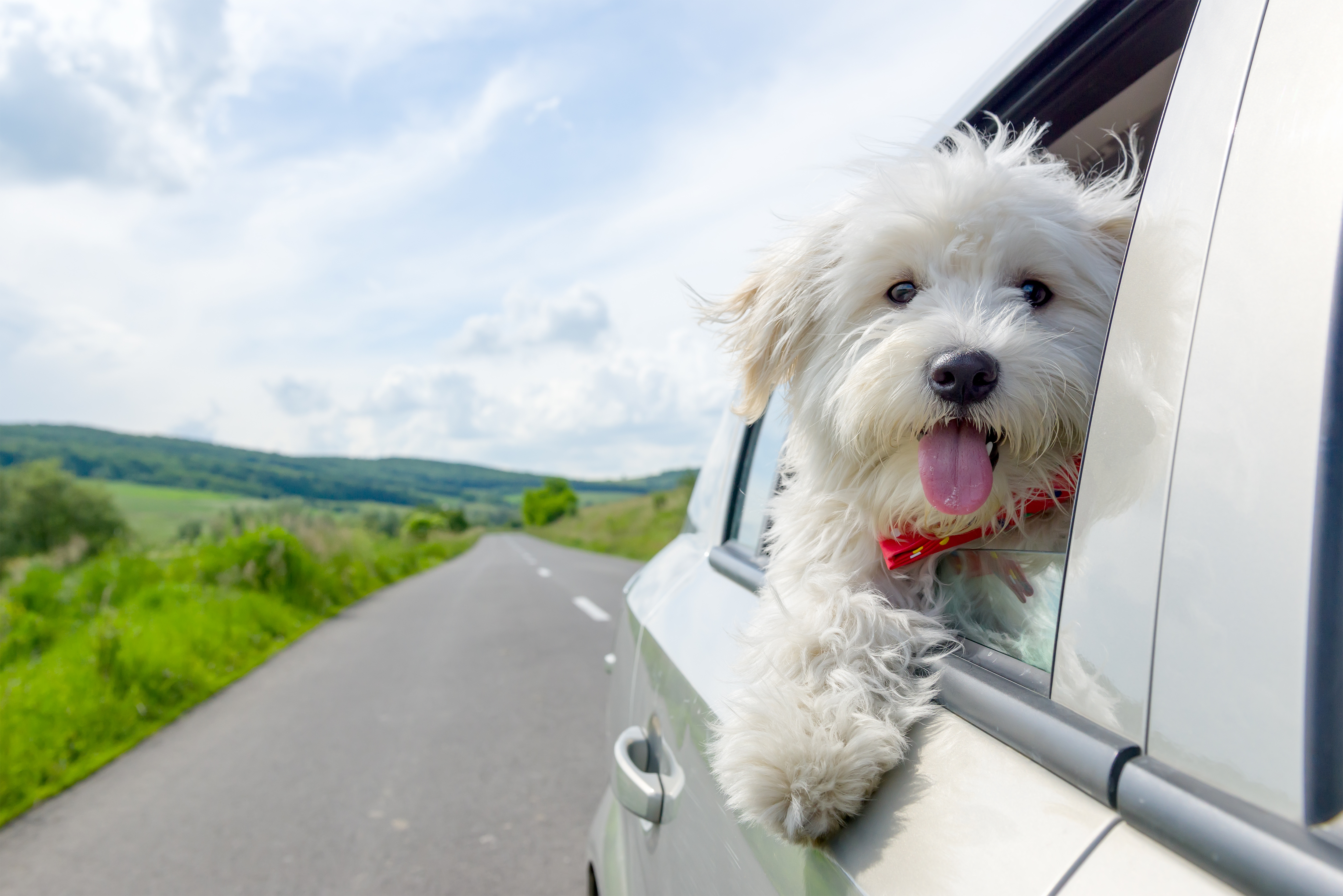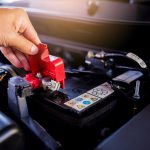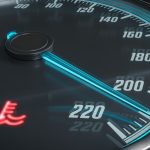
19 Aug It’s getting hot in here …. Hot Weather Driving Tips!

This last week in the Sacramento area was almost unbearable with temperatures well into the 100+ degree mark. We are definitely in the heat of the summer! All this summer heat can definitely take a toll on your vehicle. Here are some tips to keep your car in tip-top shape and you driving safely in the summer heat.
- Check your battery! Did you think battery problems were only a winter issue? Summer heat, in fact, can have more of a negative impact on
 your battery than freezing winter temperatures. Remember that your battery is literally the lifeblood of your vehicle. Not only is the battery essential for starting your engine, it also powers all of the electrical components in your vehicle. Additionally, did you know that heat and vibration – two of your battery’s worst enemies – can lead to internal breakdown and eventual failure? It is important to ensure the battery is properly mounted; additionally, cleaning corrosive buildup from battery terminals and cable clamps are excellent measures that can reduce battery vibration. Is your battery more than three years old? It’s a good idea to have it tested by a trained technician to determine how much longer it will last.
your battery than freezing winter temperatures. Remember that your battery is literally the lifeblood of your vehicle. Not only is the battery essential for starting your engine, it also powers all of the electrical components in your vehicle. Additionally, did you know that heat and vibration – two of your battery’s worst enemies – can lead to internal breakdown and eventual failure? It is important to ensure the battery is properly mounted; additionally, cleaning corrosive buildup from battery terminals and cable clamps are excellent measures that can reduce battery vibration. Is your battery more than three years old? It’s a good idea to have it tested by a trained technician to determine how much longer it will last. - Check engine fluids: Most engine fluids lubricate and serve as coolants by helping carry heat away from critical components of your engine. When fluid levels are low, the cooling effect is reduced, which increases the possibility of overheating. Periodically check all vehicle fluids, including transmission fluid, motor oil, power steering fluid and brake fluid, to ensure they are at appropriate levels. If any fluids need to be topped off, be sure to use the type of fluid specified in the owner’s manual.
 Keep your engine cool: Cooling systems protect engines from overheating and should be flushed periodically, as recommended by the vehicle manufacturer. Between flushes, make sure the coolant is filled to the proper level by checking the overflow reservoir. CAUTION! Never remove the radiator cap when the engine is hot – boiling coolant under pressure could cause serious bodily harm. Rubber cooling system components are susceptible to heat-related deterioration, so periodically inspect hoses and drive belts for softening, cracking, or other signs of poor condition.
Keep your engine cool: Cooling systems protect engines from overheating and should be flushed periodically, as recommended by the vehicle manufacturer. Between flushes, make sure the coolant is filled to the proper level by checking the overflow reservoir. CAUTION! Never remove the radiator cap when the engine is hot – boiling coolant under pressure could cause serious bodily harm. Rubber cooling system components are susceptible to heat-related deterioration, so periodically inspect hoses and drive belts for softening, cracking, or other signs of poor condition.- Monitor tire pressure: Driving on under-inflated tires can cause tires to overheat and increase the likelihood of a blowout, especially when road temperatures are extremely high. Check your car’s tire pressures (including the spare) at least once a month, because tires typically lose about one pound of pressure per month through normal seepage. For the most accurate reading, check tire pressures when the tires are cold. Always follow inflation pressure recommendations in your vehicle owner’s manual or on the tire information label located in the glove box or on the driver’s door jamb. (Note: Tire pressure molded into the tire sidewall may not be the correct pressure for your particular vehicle).
- Maintain a comfortable driving environment. Your air conditioning system is more than just a pleasant feature in your vehicle. During extreme summer heat, an air-conditioning system can reduce fatigue, which plays an important part in driver alertness and vehicle safety. If a car’s air conditioning system is not maintaining interior temperature as well as it once did, it may mean the refrigerant level is low or there is another problem. Have the system checked by a certified technician. In addition, if your car has a cabin filter, it should be inspected and replaced as needed to ensure maximum airflow and cooling during the summer months.
 Be prepared: no one wants a summer car breakdown – but it happens. If it happens to you, make sure you are prepared! An emergency vehicle kit is something that you should keep in your car year-round, but in both the winter and the summer, having one is essential. Your kit should be stored somewhere safe and accessible, and should include the following items:
Be prepared: no one wants a summer car breakdown – but it happens. If it happens to you, make sure you are prepared! An emergency vehicle kit is something that you should keep in your car year-round, but in both the winter and the summer, having one is essential. Your kit should be stored somewhere safe and accessible, and should include the following items:
-
- A flashlight
- A first aid kit
- Jumper cables or portable battery charger (be sure it is fully charged)
- Non-perishable food
- Reflective Blanket – this can also be used for shade
- Visible equipment such as road flares or reflective hazard triangles
- Water
Wishing everyone safe travels on the road this summer! If your summer travels include an unfortunate accident, please visit us at any one of our six convenient locations: Citrus Heights, Rocklin, Natomas, Shingle Springs, 18th Street (Sacramento) and X Street (Sacramento). We are here to help!









